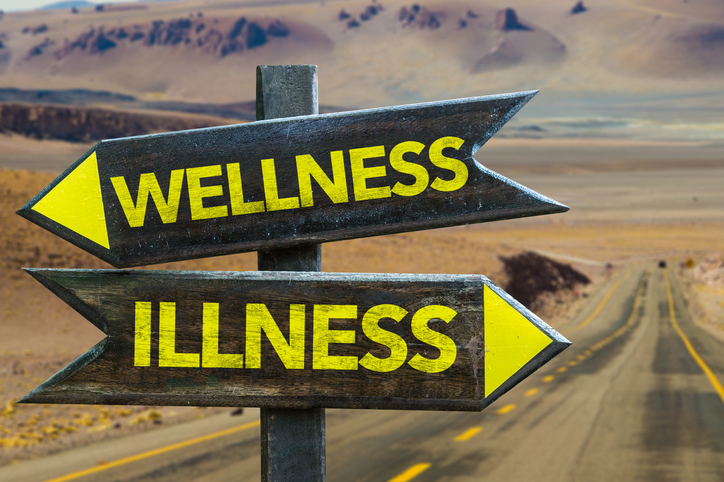“If you don’t make time for your wellness, then you’ll be forced to make time for your illness”
The crux of this column is to help you, the hotelier, profit from the ongoing convergence of scientific research, medical technologies, supply chains and societal awareness that are leading to a revolution in life-extending possibilities. With that mouthful said, the focus in 2022 should nevertheless be the here and now because, to put it squarely, why worry about popular aspects of the 2040s when you’re triaging daily staffing shortages, inflation and a swath of cancellations from the latest COVID-19 variant?
And so, for the year ahead, the in-vogue trends of human longevity or antiaging have the most pertinence for a hotel within the confines of what we presently codify as a wellness program. Therein, with this coronavirus still top of mind for everyone, it’s important to look at the difference between the words ‘wellness’ and ‘illness’ because they are being redefined as mirror images of the same intracellular functionality, with the direct application being upsell programs for your guestrooms and spa that work in both capacities.
Without a biology degree, the most straightforward way to explain this is that it’s all connected. Problems with your heart not only affect performance in the gym but can also decrease your cognition, depress your immune system, trigger hair graying or cause digestive issues, often in a self-perpetuating, positive feedback loop. The reverse pathways are also true, where a long-haul influenza-like disease can preoccupy the body to the point where it lacks the bandwidth to perform regular maintenance on a myriad of other processes.
A good analogy here is to think of your body as an office desk or email inbox. When you’re overloaded with quick tasks that require your immediate attention and nonstop meetings, you seldom have the time or energy to focus on the intensive, purposeful projects that will actually benefit the brand in the near or distant future instead of simply keeping the lights on for one more day at a time.
For your own googling pleasure, look up the ‘informational theory of aging’ or the ‘mitochondrial theory of aging’ (the energy creation units existing in every cell of every animal on the planet), along with a few similar other postulates, that are attempting to explain on a molecular level how systemic aging, chronic diseases and general bodily breakdown occur. By helping reframe every part of the body as one unified machine, the hope is to develop techniques – that is, wellness programs – that act to fix everything all at once, leading to fewer visual signs of aging, more brainpower and longer lifespans.
In this sense, illness is the inverse of wellness. All those kale smoothies, frantic Peloton workouts, CoQ10 supplements, guided meditation sessions and lavender bubble baths work to amplify a human’s baseline functionality. By doing so, individual units of the body, much like your email inbox, aren’t bogged down by minutia and can more adeptly pivot to whatever problem the randomness of the world throws its way, be it a carcinogen in that cheeseburger you just ate, a free-floating virus particle that lodges in your nostril or one of the quintillion rays of UV light bombarding our planet that happens to cause a mutagenic break in the DNA of one of your skin cells.
Wellness is your best defense against the chaos of the universe. It’s also often the cheapest where, as the proverb goes, an ounce of prevention is worth a pound of cure. Eating right, exercising and giving up smoking will save you from heart surgery a decade or two later. And as luck would have it, millions of people, or dare we say billions, are waking up to this principle and incorporating it into their livelihoods.
Knowing that this antiaging enlightenment is ramping up means that guests will soon come to not only want but expect wellness programs from their chosen hotels. And if you don’t have these value-adds set up and properly marketed in one capacity or another, your property will be immediately disqualified.
To those who think we’re speaking in tongues, yes the ‘heads in beds’ mentality will persist for limited and select service properties. There will always be the customer who’s just looking for a comfy bed in a quiet room – no frills whatsoever. But this segment of hospitality will increasingly suffer from commoditization, squeezing the ADRs you can charge and forcing you to cut corners until your hotel is essentially a vending machine for travelers.
The future of luxury or upscale travel will be defined by experiences, of which wellness programs will play a huge contributing role in how much enjoyment, satisfaction or meaning each guest derives from their hotel stays. Moreover, we see this trend seeping into the four-star and corporate mindsets where guests progressively want such amenities as in-room workout equipment, wholly organic meal options or sleep-promoting room enhancements.
To close, we propose that, because antiaging is increasingly on people’s minds, wellness should therefore be on every hotelier’s radar, no matter the star classification, as a way to safeguard brand equity as well as increase per-guest revenue capture by offering various upsell opportunities that play into this disposition. As for specific tactics and programs, for that we could write a 300-page dissertation that would be out of date the moment it hit the presses, so do your own internet-based research and brainstorm amongst your peers what can work for your specific organization.
